


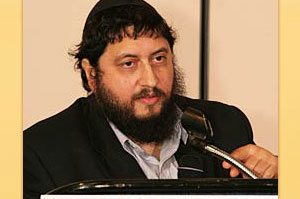
 55:43
55:43
Series: National Conference of Jewish Lawyers 2015
Mr. Jay Edelson (1)
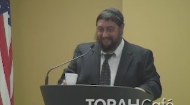 28:50
28:50
Rabbi Eli Silberstein (139)
 55:03
55:03
Series: National Conference of Jewish Lawyers 2015
Rabbi Eli Silberstein (139)
 38:55
38:55
Rabbi Eli Silberstein (139)
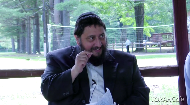 10:01
10:01
Rabbi Eli Silberstein (139)
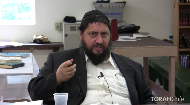 17:10
17:10
Series: The Laws of Circumcision
Rabbi Eli Silberstein (139)
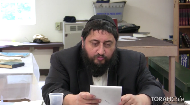 15:02
15:02
Series: The Laws of Circumcision
Rabbi Eli Silberstein (139)
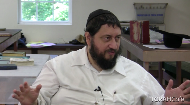 17:12
17:12
Rabbi Eli Silberstein (139)
 18:42
18:42
Series:
Rabbi Eli Silberstein (139)
 20:33
20:33
In this segment, Rabbi Eli Silberstein explores a section of the Aramaic text of the Talmud that elaborates on the previously discussed Mishnah. He focuses on a subtlety in the laws of a custodian’s responsibility and brings modern day parallels to help illustrate the distinction between two similar cases.
Rabbi Eli Silberstein (139)
 9:19
9:19
This class works through a famous passage from the Mishna, titled “Hamafkid”. Rabbi Eli Silberstein provides a clear elucidation of this legal text that discusses the responsibilities of a custodian.
Rabbi Eli Silberstein (139)
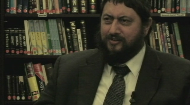 1:26:46
1:26:46
Rabbi Eli Silberstein (139)
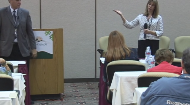 34:14
34:14
Dr. Michael Grossman and Dr. Barbara Grossman, noted relationship experts and counselors, lead a discussion on infusing G-d into our marital relationships
Dr. Barbara Grossman (3)
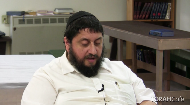 13:29
13:29
Series:
Rabbi Eli Silberstein (139)
 11:51
11:51
Rabbi Eli Silberstein (139)
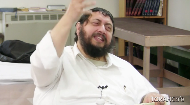 39:20
39:20
Rabbi Eli Silberstein (139)
 11:05
11:05
Rabbi Eli Silberstein (139)
 13:52
13:52
Are there spiritual lessons to be learned from historical events? For one who believes that G-d is the Divine Hand controlling all events, the answer is clearly in the affirmative
Rabbi Eli Silberstein (139)
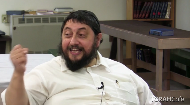 6:42
6:42
Every word in Hebrew has a specific and unique meaning, even when it seems to be synonymous with another
Series:
Rabbi Eli Silberstein (139)
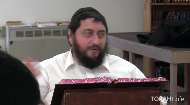 41:46
41:46
Rabbi Eli Silberstein (139)
 17:44
17:44
Rabbi Eli Silberstein (139)
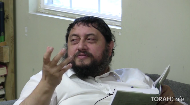 30:10
30:10
Rabbi Eli Silberstein (139)
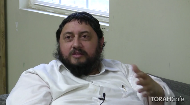 25:29
25:29
Rabbi Eli Silberstein (139)
 23:02
23:02
Rabbi Eli Silberstein (139)
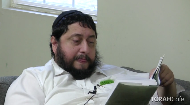 37:22
37:22
Rabbi Eli Silberstein (139)
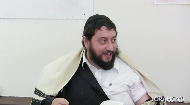 39:14
39:14
Rabbi Eli Silberstein (139)
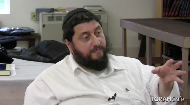 9:40
9:40
Rabbi Eli Silberstein (139)
 7:54
7:54
Rabbi Eli Silberstein gives a light hearted explanation of Rabbi Elazar ben Azariah's aging.
Rabbi Eli Silberstein (139)
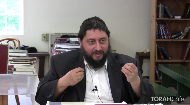 1:07:31
1:07:31
Rabbi Eli Silberstein (139)
 3:45
3:45
At a Chassidic gathering, Rabbi Eli Silberstein sings a lively melody based on a few verses from Psalms. Translation: “Remember the word promised to Your servant by which You gave me hope. This is my comfort in my affliction, for Your word has given me life. Though the wicked ridicule me severely, I have not strayed from Your Torah.” – Psalms 119: 49-51.
Rabbi Eli Silberstein (139)
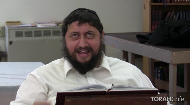 4:23
4:23
Rabbi Eli Silberstein sings a moving Chassidic melody with his unique dynamism and passion. .
Rabbi Eli Silberstein (139)
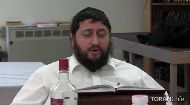 3:54
3:54
Rabbi Eli Silberstein sings a powerful Chassidic song, based on a few verses from Psalms. Translation: “Had your Torah not been my delight, my soul would have perished in my affliction. Never will I forget your laws, for You have sustained me through them. I am Yours; save me, for I have sought out Your laws.” – Psalms 119:92-94.
Rabbi Eli Silberstein (139)
 55:27
55:27
This lecture was delivered at the 2th annual National Jewish Retreat. For more information and to register for the next retreat, visit: Jretreat.com.
Rabbi Eli Silberstein (139)
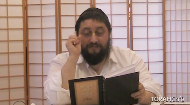 15:15
15:15
Rabbi Eli Silberstein (139)
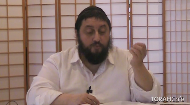 9:35
9:35
Rabbi Eli Silberstein (139)
 5:18
5:18
Rabbi Eli Silberstein (139)
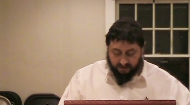 12:03
12:03
Rabbi Eli Silberstein (139)
 3:52
3:52
Rabbi Eli Silberstein (139)
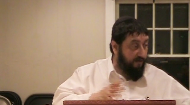 7:18
7:18
Rabbi Eli Silberstein (139)
 6:28
6:28
Rabbi Eli Silberstein (139)
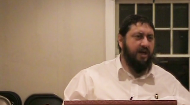 11:35
11:35
Rabbi Eli Silberstein (139)
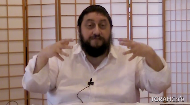 10:21
10:21
The order of the Passover Seder is very specific. Not only is there a particular sequence in which each part is performed, but we even announce that sequence at the beginning of the meal in the classic song, "Kadeish, Urchatz..
Rabbi Eli Silberstein (139)
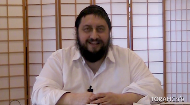 6:03
6:03
Though commonly refered to as Passover, or the Hebrew, "Pesach," this holiday actually has a few names. Where do these names come from? Who uses each name? Rabbi Eli Silberstein expains the origin of the names of Passover as well as the deeper themes they signify in the holiday. .
Rabbi Eli Silberstein (139)
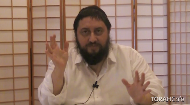 10:35
10:35
Every year during the seder we read about the infamous four sons - the wise, the wicked, the simple and the one who does not know how to ask. However, upon closer examination, it appears that the wise and the wicked sons - seemingly polar opposites - seem to be asking the same question
Rabbi Eli Silberstein (139)
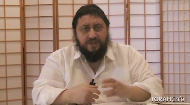 15:50
15:50
During the Passover Seder we read about the commandment to mention the Exodus from Egypt
Rabbi Eli Silberstein (139)
 8:22
8:22
Rabbi Eli Silberstein shares a deep insight by Rabbi Akivah Eiger, one of the most studied Torah giants of the 17th century, regarding a seeming contradiction in the texts relating the story of the tenth plague, the death of the first born. This fascinating idea proves relevant with regard to the mitzva we still practice today -- the redemption of the firstborn known as pidyon haben.
Rabbi Eli Silberstein (139)
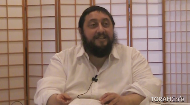 5:35
5:35
Ma Nishtana is perhaps the most well known parts of the seder. But dids you ever wonder why we ask questions on Passover? Why not ask questions on other Jewish holidays? In this segment, Rabbi Eli Silberstein will answer these questions and perhaps the most important question, "Why is this night different from all other nights?".
Rabbi Eli Silberstein (139)
 10:27
10:27
Series:
Rabbi Eli Silberstein (139)
 10:20
10:20
Series:
Rabbi Eli Silberstein (139)
 50:18
50:18
This lecture was delivered at the 3th annual National Jewish Retreat. For more information and to register for the next retreat, visit: Jretreat.com.
Rabbi Eli Silberstein (139)
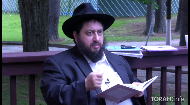 4:17
4:17
Series:
Rabbi Eli Silberstein (139)
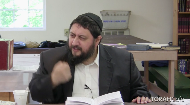 52:39
52:39
Series:
Rabbi Eli Silberstein (139)
 1:08:48
1:08:48
Rabbi Eli Silberstein (139)
 55:15
55:15
This class was given in loving memory of Bat Sheva bat Reb Moshe Zalman A"H.
Rabbi Eli Silberstein (139)
 1:01:01
1:01:01
In this segment with Rabbi Eli Silberstein, we will explore the nature of the unique miracle of Chanukkah. Chanukkah is called the festival of lights, but did you ever stop to think, it seems like quite a minor miracle to merit such a major holiday? All other holidays commemorate large and transformative miracles, while in comparison, this seems somewhat insignificant
Rabbi Eli Silberstein (139)
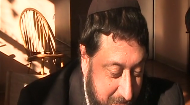 1:07:43
1:07:43
Rabbi Eli Silberstein (139)
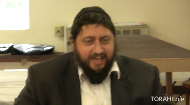 6:36
6:36
A niggun is a wordless melody that expresses deep meaning and emotion. This niggun, sung by Rabbi Eli Silberstein, is entitled Niggun Simcha, meaning, “A Joyous Melody.” Join Rabbi Eli Silberstein for this uplifting musical experience. .
Rabbi Eli Silberstein (139)
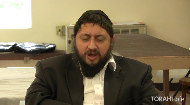 3:32
3:32
A niggun is a wordless melody that expresses deep meaning and emotion. This particular niggun, sung by Rabbi Eli Silberstein, was composed to reflect the story of a military leader named Shamil who was tricked by the Russian army and imprisoned as a result
Rabbi Eli Silberstein (139)
 2:35
2:35
Rabbi Eli Silberstein sings a lively Chassidic melody at a Chassidic gathering.
Rabbi Eli Silberstein (139)
 7:55
7:55
Rabbi Eli Silberstein (139)
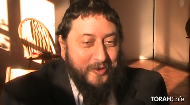 5:02
5:02
In this segment, Rabbi Eli Silberstein, discusses the three main ways that a person can connect with their loved ones after their passing: reciting the Mourner’s Kaddish, learning Mishnayot in their memory and doing good deeds. Rabbi Silberstein expounds on each one and its unique value to the departed soul.
Rabbi Eli Silberstein (139)
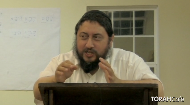 15:14
15:14
Is it possible to prove the Divine origin of the Torah? Rabbi Eli Silberstein addresses this question by illustrating the compelling history of the Jewish people and the continuity of our tradition. .
Rabbi Eli Silberstein (139)
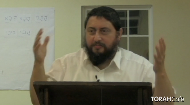 4:16
4:16
Should I be taking on religious rituals that I don’t feel ready for? In this clip, Rabbi Eli Silberstein addresses this question by explaining the impact that your external behaviors have on you and how they can influence your future decisions.
Rabbi Eli Silberstein (139)
 9:55
9:55
In this clip, Rabbi Eli Silberstein addresses how to approach your relationship with parents while adapting a more religious lifestyle. He discusses the struggles that come up for many parents and how to see Judaism as a way to deepen your connection to your family.
Rabbi Eli Silberstein (139)
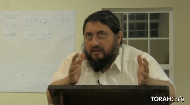 7:12
7:12
Some of the stories that show up in Midrashic sources sound rather bizarre and fantastical. Are these far-fetched narratives meant to be taken literally or are they merely metaphorical? In this short clip, Rabbi Eli Silberstein discusses how to approach stories in the Midrash.
Rabbi Eli Silberstein (139)
 13:28
13:28
Join Rabbi Eli Silberstein for a Chassidic gathering of heartfelt words and moving anecdotes. This excerpt emphasizes the importance of love and respect of a fellow Jew.
Rabbi Eli Silberstein (139)
 27:54
27:54
Tractate Brachot is the first tractate of Seder Zeraim of the Mishnah, the first major text of Jewish law. It primarily addresses the rules regarding the Shema, the Amidah, Birkat Hamazon, Kiddush, Havdalah and other blessings and prayers. It is the only tractate in Zeraim to have a Gemara from both the Babylonian Talmud and the Jerusalem Talmud.
Rabbi Eli Silberstein (139)
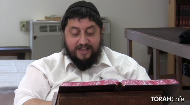 35:28
35:28
Tractate Brachot is the first tractate of Seder Zeraim of the Mishnah, the first major text of Jewish law. It primarily addresses the rules regarding the Shema, the Amidah, Birkat Hamazon, Kiddush, Havdalah and other blessings and prayers. It is the only tractate in Zeraim to have a Gemara from both the Babylonian Talmud and the Jerusalem Talmud.
Rabbi Eli Silberstein (139)
 17:53
17:53
Join Rabbi Eli Silberstein as he explains what singing a Chassidic melody, or niggun, is all about. At this Farbrengen, or Chassidic gathering, Rabbi Silberstein shares Chassidic stories and explains the deep meaning of music and song. Watch this video and let's say L'chaim!.
Rabbi Eli Silberstein (139)
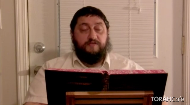 45:22
45:22
Tractate Brachot is the first tractate of Seder Zeraim of the Mishnah, the first major text of Jewish law. It primarily addresses the rules regarding the Shema, the Amidah, Birkat Hamazon, Kiddush, Havdalah and other blessings and prayers. It is the only tractate in Zeraim to have a Gemara from both the Babylonian Talmud and the Jerusalem Talmud.
Rabbi Eli Silberstein (139)
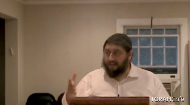 33:56
33:56
Tractate Brachot is the first tractate of Seder Zeraim of the Mishnah, the first major text of Jewish law. It primarily addresses the rules regarding the Shema, the Amidah, Birkat Hamazon, Kiddush, Havdalah and other blessings and prayers. It is the only tractate in Zeraim to have a Gemara from both the Babylonian Talmud and the Jerusalem Talmud.
Rabbi Eli Silberstein (139)
 45:09
45:09
Tractate Brachot is the first tractate of Seder Zeraim of the Mishnah, the first major text of Jewish law. It primarily addresses the rules regarding the Shema, the Amidah, Birkat Hamazon, Kiddush, Havdalah and other blessings and prayers. It is the only tractate in Zeraim to have a Gemara from both the Babylonian Talmud and the Jerusalem Talmud.
Rabbi Eli Silberstein (139)
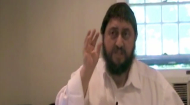 39:01
39:01
Tractate Brachot is the first tractate of Seder Zeraim of the Mishnah, the first major text of Jewish law. It primarily addresses the rules regarding the Shema, the Amidah, Birkat Hamazon, Kiddush, Havdalah and other blessings and prayers. It is the only tractate in Zeraim to have a Gemara from both the Babylonian Talmud and the Jerusalem Talmud.
Rabbi Eli Silberstein (139)
 47:38
47:38
Tractate Brachot is the first tractate of Seder Zeraim of the Mishnah, the first major text of Jewish law. It primarily addresses the rules regarding the Shema, the Amidah, Birkat Hamazon, Kiddush, Havdalah and other blessings and prayers. It is the only tractate in Zeraim to have a Gemara from both the Babylonian Talmud and the Jerusalem Talmud.
Rabbi Eli Silberstein (139)
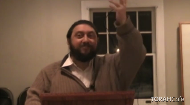 49:16
49:16
Tractate Brachot is the first tractate of Seder Zeraim of the Mishnah, the first major text of Jewish law. It primarily addresses the rules regarding the Shema, the Amidah, Birkat Hamazon, Kiddush, Havdalah and other blessings and prayers. It is the only tractate in Zeraim to have a Gemara from both the Babylonian Talmud and the Jerusalem Talmud.
Rabbi Eli Silberstein (139)
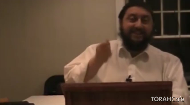 51:43
51:43
Tractate Brachot is the first tractate of Seder Zeraim of the Mishnah, the first major text of Jewish law. It primarily addresses the rules regarding the Shema, the Amidah, Birkat Hamazon, Kiddush, Havdalah and other blessings and prayers. It is the only tractate in Zeraim to have a Gemara from both the Babylonian Talmud and the Jerusalem Talmud.
Rabbi Eli Silberstein (139)
 43:18
43:18
Tractate Brachot primarily addresses the rules regarding the Shema, the Amidah, Birkat Hamazon, Kiddush, Havdalah and other blessings and prayers. It is the only tractate in Zeraim to have a Gemara from both the Babylonian Talmud and the Jerusalem Talmud.
Rabbi Eli Silberstein (139)
 36:16
36:16
Tractate Berachot is the first tractate of Seder Zeraim of the Mishnah, the first major text of Jewish law. It primarily addresses the rules regarding the Shema, the Amidah, Birkat Hamazon, Kiddush, Havdalah and other blessings and prayers. Tractate Berachot is the only tractate in Zeraim to have a Gemara from both the Babylonian Talmud and the Jerusalem Talmud.
Rabbi Eli Silberstein (139)
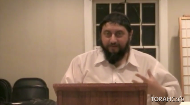 56:19
56:19
Tractate Brachot is the first tractate of the Mishnah, the first major text of Jewish law. Berachot primarily addresses the rules regarding the Shema, the Amidah, Birkat Hamazon, Kiddush, Havdalah and other blessings and prayers. It is the only tractate in Zeraim to have a Gemara from both the Babylonian Talmud and the Jerusalem Talmud.
Rabbi Eli Silberstein (139)
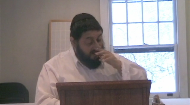 1:10:18
1:10:18
Chapter 7 of Mishnayos Mikva'os is traditionally studied in memory of a deceased loved one, during the 11 months of mourning. This class was given in loving memory of Bat Sheva bat Reb Moshe Zalman A"H.
Rabbi Eli Silberstein (139)
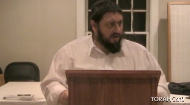 56:19
56:19
Tractate Brachot addresses the rules regarding the Shema, the Amidah, Birkat Hamazon, Kiddush, Havdalah amoung other blessings and prayers. It is the only tractate in Zeraim to have a Gemara from both the Babylonian Talmud and the Jerusalem Talmud.
Rabbi Eli Silberstein (139)
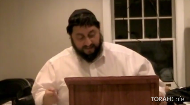 40:42
40:42
Tractate Brachot is the first tractate of Seder Zeraim of the Mishnah, the first major text of Jewish law. It primarily addresses the rules regarding the Shema, the Amidah, Birkat Hamazon, Kiddush, Havdalah and other blessings and prayers. It is the only tractate in Zeraim to have a Gemara from both the Babylonian Talmud and the Jerusalem Talmud.
Rabbi Eli Silberstein (139)
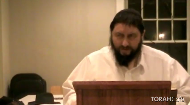 1:01:26
1:01:26
Tractate Berachot primarily addresses the rules regarding the Shema, the Amidah, Birkat Hamazon, Kiddush, Havdalah and other blessings and prayers.
Rabbi Eli Silberstein (139)
 30:30
30:30
Tractate Berachot, the first tractate of the Mishnah, the first major text of Jewish law. It primarily addresses the rules regarding the Shema, the Amidah, Birkat Hamazon, Kiddush, Havdalah and other blessings and prayers. .
Rabbi Eli Silberstein (139)
 39:54
39:54
Rabbi Eli Silberstein (139)
 30:53
30:53
Tractate Brachot is the first tractate of Seder Zeraim of the Mishnah, the first major text of Jewish law. It primarily addresses the rules regarding the Shema, the Amidah, Birkat Hamazon, Kiddush, Havdalah and other blessings and prayers. It is the only tractate in Zeraim to have a Gemara from both the Babylonian Talmud and the Jerusalem Talmud.
Rabbi Eli Silberstein (139)
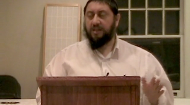 38:26
38:26
Tractate Brachot is the first tractate of Seder Zeraim of the Mishnah, the first major text of Jewish law. It primarily addresses the rules regarding the Shema, the Amidah, Birkat Hamazon, Kiddush, Havdalah and other blessings and prayers. It is the only tractate in Zeraim to have a Gemara from both the Babylonian Talmud and the Jerusalem Talmud.
Rabbi Eli Silberstein (139)
 5:41
5:41
Rabbi Eli Silberstein sings the classic Jewish song, Omar Hashem L'Yaakov - G-d Said to Jacob.
Rabbi Eli Silberstein (139)
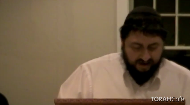 36:11
36:11
Tractate Brachot is the first tractate of Seder Zeraim of the Mishnah, the first major text of Jewish law. It primarily addresses the rules regarding the Shema, the Amidah, Birkat Hamazon, Kiddush, Havdalah and other blessings and prayers. It is the only tractate in Zeraim to have a Gemara from both the Babylonian Talmud and the Jerusalem Talmud.
Rabbi Eli Silberstein (139)
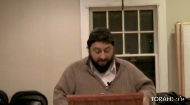 44:02
44:02
Tractate Brachot is the first tractate of Seder Zeraim of the Mishnah, the first major text of Jewish law. It primarily addresses the rules regarding the Shema, the Amidah, Birkat Hamazon, Kiddush, Havdalah and other blessings and prayers. It is the only tractate in Zeraim to have a Gemara from both the Babylonian Talmud and the Jerusalem Talmud.
Rabbi Eli Silberstein (139)
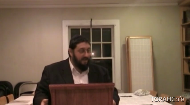 40:56
40:56
Tractate Brachot is the first tractate of Seder Zeraim of the Mishnah, the first major text of Jewish law. It primarily addresses the rules regarding the Shema, the Amidah, Birkat Hamazon, Kiddush, Havdalah and other blessings and prayers. It is the only tractate in Zeraim to have a Gemara from both the Babylonian Talmud and the Jerusalem Talmud.
Rabbi Eli Silberstein (139)
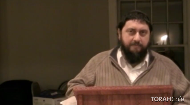 57:55
57:55
Tractate Berachot is the first tractate of Seder Zeraim of the Mishnah. It primarily addresses the rules regarding the Shema, the Amidah, Birkat Hamazon, Kiddush, Havdalah and other blessings and prayers. It is the only tractate in Zeraim to have a Gemara from both the Babylonian Talmud and the Jerusalem Talmud.
Rabbi Eli Silberstein (139)
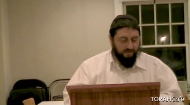 47:02
47:02
Tractate Brachot is the first tractate of the Mishnah.
Rabbi Eli Silberstein (139)
 0:47
0:47
Tractate Berachot is the first tractate the Mishnah, the first major text of Jewish law. It primarily addresses the rules regarding the Shema, the Amidah, Birkat Hamazon, Kiddush, Havdalah and other blessings and prayers. It is the only tractate in Zeraim to have a Gemara from both the Babylonian Talmud and the Jerusalem Talmud.
Rabbi Eli Silberstein (139)
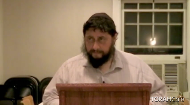 42:40
42:40
Tractate Berachot is the first tractate of the Mishnah.
Rabbi Eli Silberstein (139)
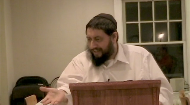 30:06
30:06
Yoma is the fifth tractate of Seder Moed of the Mishnah and of the Talmud. It is concerned mainly with the laws of the Jewish holiday Yom Kippur, on which Jews atone for their sins from the previous year.
Rabbi Eli Silberstein (139)
 13:31
13:31
The Thirteen Attributes of Mercy or Shelosh-'Esreh Middot enumerated in Exodus (34:6-7) are the attributes with which, according to Jewish tradition, God governs the world
Rabbi Eli Silberstein (139)
 9:19
9:19
The Thirteen Attributes of Mercy enumerated in Exodus (34:6-7) are the attributes with which, according to Jewish tradition, God governs the world. According to the explanation of Maimonides these attributes must not be regarded as qualities inherent in God, but merely as the method of His activity, by which the divine governance appears to the human observer to be controlled.
Rabbi Eli Silberstein (139)
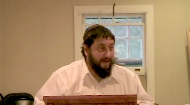 41:23
41:23
Tractate Brachot is the first tractate of Seder Zeraim of the Mishnah, the first major text of Jewish law. It primarily addresses the rules regarding the Shema, the Amidah, Birkat Hamazon, Kiddush, Havdalah and other blessings and prayers. It is the only tractate in Zeraim to have a Gemara from both the Babylonian Talmud and the Jerusalem Talmud.
Rabbi Eli Silberstein (139)
 45:05
45:05
Tractate Brachot is the first tractate of Seder Zeraim of the Mishnah, the first major text of Jewish law. It primarily addresses the rules regarding the Shema, the Amidah, Birkat Hamazon, Kiddush, Havdalah and other blessings and prayers. It is the only tractate in Zeraim to have a Gemara from both the Babylonian Talmud and the Jerusalem Talmud.
Rabbi Eli Silberstein (139)
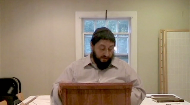 39:47
39:47
Tractate Brachot is the first tractate of Seder Zeraim of the Mishnah, the first major text of Jewish law. It primarily addresses the rules regarding the Shema, the Amidah, Birkat Hamazon, Kiddush, Havdalah and other blessings and prayers. It is the only tractate in Zeraim to have a Gemara from both the Babylonian Talmud and the Jerusalem Talmud.
Rabbi Eli Silberstein (139)
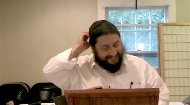 29:57
29:57
Tractate Brachot is the first tractate of Seder Zeraim of the Mishnah, the first major text of Jewish law. It primarily addresses the rules regarding the Shema, the Amidah, Birkat Hamazon, Kiddush, Havdalah and other blessings and prayers. It is the only tractate in Zeraim to have a Gemara from both the Babylonian Talmud and the Jerusalem Talmud.
Rabbi Eli Silberstein (139)
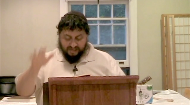 36:42
36:42
Tractate Brachot is the first tractate of Seder Zeraim of the Mishnah, the first major text of Jewish law. It primarily addresses the rules regarding the Shema, the Amidah, Birkat Hamazon, Kiddush, Havdalah and other blessings and prayers. It is the only tractate in Zeraim to have a Gemara from both the Babylonian Talmud and the Jerusalem Talmud.
Rabbi Eli Silberstein (139)
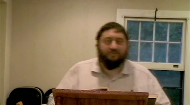 53:30
53:30
Tractate Brachot is the first tractate of Seder Zeraim of the Mishnah, the first major text of Jewish law. It primarily addresses the rules regarding the Shema, the Amidah, Birkat Hamazon, Kiddush, Havdalah and other blessings and prayers. It is the only tractate in Zeraim to have a Gemara from both the Babylonian Talmud and the Jerusalem Talmud.
Rabbi Eli Silberstein (139)
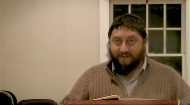 56:03
56:03
Tractate Brachot is the first tractate of Seder Zeraim of the Mishnah, the first major text of Jewish law. It primarily addresses the rules regarding the Shema, the Amidah, Birkat Hamazon, Kiddush, Havdalah and other blessings and prayers. It is the only tractate in Zeraim to have a Gemara from both the Babylonian Talmud and the Jerusalem Talmud.
Rabbi Eli Silberstein (139)
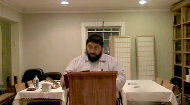 51:18
51:18
Tractate Brachot is the first tractate of Seder Zeraim of the Mishnah, the first major text of Jewish law. It primarily addresses the rules regarding the Shema, the Amidah, Birkat Hamazon, Kiddush, Havdalah and other blessings and prayers. It is the only tractate in Zeraim to have a Gemara from both the Babylonian Talmud and the Jerusalem Talmud.
Rabbi Eli Silberstein (139)
 58:55
58:55
Tractate Brachot is the first tractate of Seder Zeraim of the Mishnah, the first major text of Jewish law. It primarily addresses the rules regarding the Shema, the Amidah, Birkat Hamazon, Kiddush, Havdalah and other blessings and prayers. It is the only tractate in Zeraim to have a Gemara from both the Babylonian Talmud and the Jerusalem Talmud.
Rabbi Eli Silberstein (139)
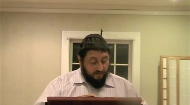 42:15
42:15
Tractate Brachot is the first tractate of Seder Zeraim of the Mishnah, the first major text of Jewish law. It primarily addresses the rules regarding the Shema, the Amidah, Birkat Hamazon, Kiddush, Havdalah and other blessings and prayers. It is the only tractate in Zeraim to have a Gemara from both the Babylonian Talmud and the Jerusalem Talmud.
Rabbi Eli Silberstein (139)
 52:45
52:45
Tractate Berachot is the first tractate of Seder Zeraim of the Mishnah, the first major text of Jewish law. It primarily addresses the rules regarding the Shema, the Amidah, Birkat Hamazon, Kiddush, Havdalah and other blessings and prayers. It is the only tractate in Zeraim to have a Gemara from both the Babylonian Talmud and the Jerusalem Talmud.
Rabbi Eli Silberstein (139)
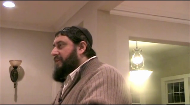 50:27
50:27
Tractate Berachot is the first tractate of Seder Zeraim of the Mishnah, the first major text of Jewish law. It primarily addresses the rules regarding the Shema, the Amidah, Birkat Hamazon, Kiddush, Havdalah and other blessings and prayers. .
Rabbi Eli Silberstein (139)
 47:09
47:09
Tractate Brachot is the only tractate in the order Zeraim to have a Gemara from both the Babylonian Talmud and the Jerusalem Talmud.
Rabbi Eli Silberstein (139)
 53:53
53:53
Tractate Brachot is the first tractate of Seder Zeraim of the Mishnah, the first major text of Jewish law. It primarily addresses the rules regarding the Shema, the Amidah, Birkat Hamazon, Kiddush, Havdalah and other blessings and prayers. .
Rabbi Eli Silberstein (139)
 1:07:54
1:07:54
Tractate Brachot is the first tractate of Seder Zeraim of the Mishnah, the first major text of Jewish law. .
Rabbi Eli Silberstein (139)
 47:47
47:47
Rabbi Eli Silberstein (139)
 47:30
47:30
Rabbi Eli Silberstein (139)
 1:06:13
1:06:13
Rabbi Eli Silberstein (139)
 1:24:30
1:24:30
Rabbi Eli Silberstein (139)
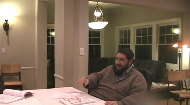 1:27:21
1:27:21
Rabbi Eli Silberstein (139)
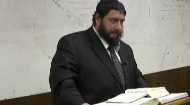 59:54
59:54
Rabbi Eli Silberstein (139)
 1:11:02
1:11:02
Rabbi Eli Silberstein (139)
 1:34:13
1:34:13
Rabbi Eli Silberstein (139)
 38:14
38:14
Rabbi Eli Silberstein (139)
 49:39
49:39
This lecture was delivered at the 3th annual National Jewish Retreat. For more information and to register for the next retreat, visit: Jretreat.com.
Rabbi Eli Silberstein (139)
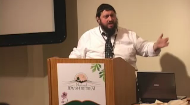 45:55
45:55
Every period in Jewish history can be defined by the leaders who served as conduits conveying the will of G-d and providing direction and inspiration to the nation. Throughout the millennia, Israel has been led by prophets, kings and sages, and composites of all of these
Rabbi Eli Silberstein (139)
 56:48
56:48
This lecture was delivered at the 2th annual National Jewish Retreat. For more information and to register for the next retreat, visit: Jretreat.com.
Rabbi Eli Silberstein (139)
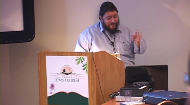 55:21
55:21
This lecture was delivered at the 3th annual National Jewish Retreat. For more information and to register for the next retreat, visit: Jretreat.com.
Rabbi Eli Silberstein (139)
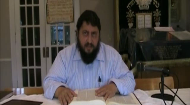 41:32
41:32
Accompanying Resources: Gemara: Bava Batra 137b, Sukkah 2b.
Rabbi Eli Silberstein (139)
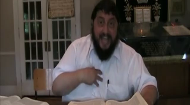 50:43
50:43
Accompanying Resources: Gemara: Sukkah 27b.
Rabbi Eli Silberstein (139)
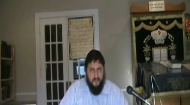 42:21
42:21
There are many mitzvot that we do that are not written in the Torah; they were established by the Rabbis. Does transgressing a Rabbinic law carry the same weight as transgressing a Torah law? Is the process of teshuva-repentance- the same in both cases? Rabbi Eli Silberstein has the answers.
Series: Judaism Decoded Lesson 3
Rabbi Eli Silberstein (139)
 31:07
31:07
We've all experienced that "uh-oh" moment, when we realize we accidentally did something wrong. Is there a way in Judaism to atone for such a thing? Rabbi Eli Silberstein explains the concepts, practices and importance of teshuvah- repentance. .
Rabbi Eli Silberstein (139)
 46:42
46:42
Join Rabbi Eli Silberstein for an exploration on the surprising role your thoughts play in creating harmonious - or not-so-harmonious - relationships with others.
Rabbi Eli Silberstein (139)